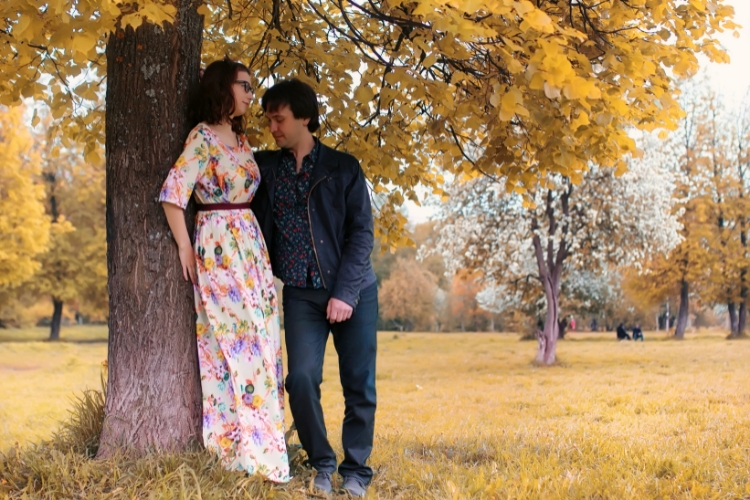In the ever-evolving landscape of romance, social media and dating apps have become pivotal in shaping the way we pursue love and relationships. With a simple swipe, connections are made or missed, and the traditional pathways to romance are being rewritten.
In this blog post guide, we will explore about the multifaceted influence of social media on today’s dating scene, from the psychology of digital courtship to the resurgence of in-person dating events. Join us as we explore the dos and don’ts, the impact on relationship dynamics, and the community’s role in modern love.
Key Takeaways
- Dating apps are more than a binary choice of swiping left or right; they’re platforms for fostering meaningful connections through innovative features.
- Creating a successful online dating profile involves being authentic and secure, avoiding incomplete information or seeking mere attention.
- In-person dating events offer a refreshing alternative to digital interactions, emphasizing real-life connections and community involvement.
- The public nature of social media blurs the lines between private and public lives, influencing how romantic narratives are crafted and perceived.
- The validation received through social media can significantly affect self-esteem and relationship dynamics, highlighting the need for a balanced online presence.
The Digital Courtship: How Dating Apps Reshape Romance
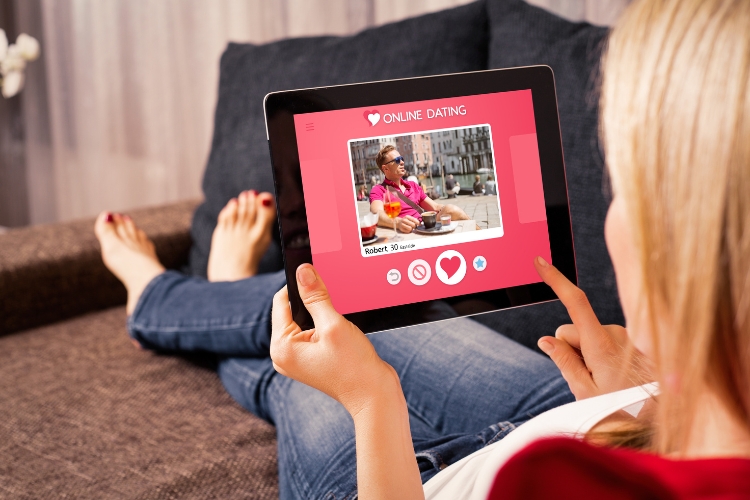
The Psychology Behind Swiping and Matching
The act of swiping on dating apps is more than just a search for a potential partner; it’s a psychological journey. Swiping right or left is not just a physical action, but a decision-making process that involves instant judgment based on a complex mix of physical attraction, common interests, and intuitive responses to a person’s profile. The swipe left/right mentality has become a cultural phenomenon, shaping how we perceive and engage in romantic pursuits.
- Coping with negative emotions
- Seeking enhancement of self-esteem
- Pursuing sociability
These motives, identified in studies, highlight the psychological underpinnings of dating app usage. The immediate ‘feel good’ interactions, such as getting a ‘like’ or a ‘match’, activate our psychophysiological reward system, making the experience addictive for some.
The allure of potential matches and the ease of connecting with others have significantly altered our approach to romance, leading to a less commitment-focused dating culture.
The simplicity of swiping combined with the complex algorithms designed to match users has created a new era of digital courtship, where decisions are made swiftly, often based on superficial criteria.
Features That Foster Meaningful Connections
In the landscape of digital romance, certain features stand out for their ability to create deeper, more meaningful connections. Advanced algorithms play a pivotal role, ensuring that users are matched with compatible partners, thus increasing the likelihood of a genuine connection. Interactive profiles that go beyond static photos and text allow individuals to showcase their personalities, making the first virtual impression as authentic as possible.
Authenticity is very important because it’s the foundation of building a real genuine connection.
In addition to these, features such as secure messaging systems and video calling options provide users with safe and versatile ways to communicate, further enriching the dating experience. Privacy settings are also crucial, as they empower users to control their online presence and interactions, fostering a safe environment for all.
The integration of in-person events and meet-ups by some apps adds a unique layer to the dating experience, encouraging users to transition from swiping to mingling. This blend of digital and real-life interaction can significantly enhance user satisfaction and app loyalty.
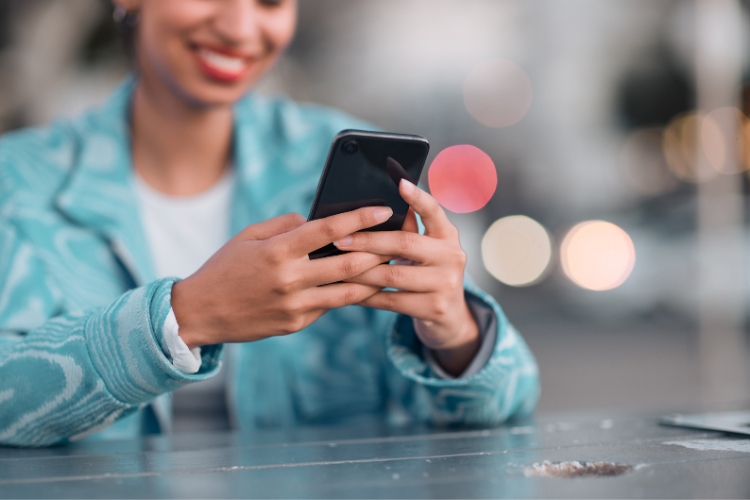
The Shift from Traditional to Digital Romance
The landscape of love has undergone a seismic shift with the advent of the digital age. Online dating has revolutionized how we approach relationships, providing new opportunities for connection and self-discovery.
The main reasons for this migration from traditional dating scenes—like bars and social gatherings—to digital platforms include a variety of social and personal factors. Fear of rejection, self-consciousness, and the convenience of accessing a potentially unlimited pool of candidates are just a few.
Convenience is not the only driver; the digital realm offers a sense of safety and control that in-person interactions may lack. This is particularly true for sexual minorities, who may face uncertainty or stigma in traditional dating environments.
Data from Western Europe and North America suggest that the majority of new intimate partner relationships now begin online, marking a definitive trend towards digital courtship.
The digital era has not only changed where we find love but also how we build and sustain it. Dating apps are more than tools for swiping; they are platforms for fostering meaningful interactions and community, even when a match is not made.
Despite the benefits, the shift to digital romance is not without its challenges. Navigating dating apps requires a new set of skills and strategies to manage expectations and foster genuine connections in a world where the lines between the virtual and the real are increasingly blurred.
Navigating the Complexities of Online Dating
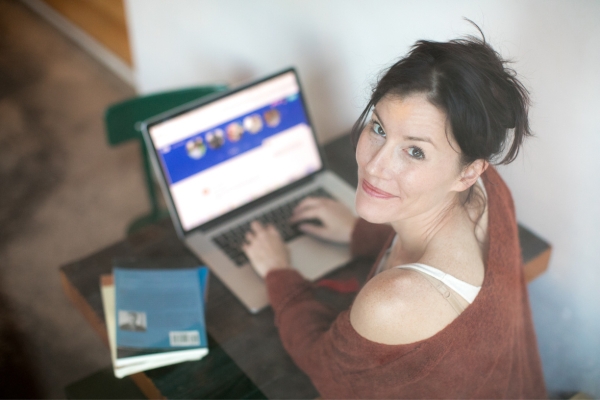
Creating an Engaging Profile: Dos and Don’ts
In the realm of online dating, your profile is your gateway to potential matches. Do be authentic, but not boring, showcasing your true self while keeping it interesting. Avoid the pitfall of an incomplete profile; it can signal a lack of commitment or effort.
- Do keep your account secure.
- Don’t use dating apps purely for attention.
- Do ask questions to your matches to foster engaging conversations.
- Don’t make your bio negative or overly long.
- Do update your photos to reflect your current self and avoid low quality images.
Maintain a respectful tone in your profile and communication. Show genuine interest in getting to know your matches, rather than making offensive jokes or using inappropriate language.
Remember, the goal is to create connections that could lead to meaningful relationships. By following these dos and don’ts, you’re setting the stage for a more successful and enjoyable online dating experience.
Security and Privacy in the Age of Digital Love
In the realm of digital romance, security and privacy are paramount. The information you share on dating apps can be as revealing as the conversations you have on them. It’s crucial to maintain a balance between being open to potential matches and protecting your personal data. Here are some key dos and don’ts to help safeguard your online presence:
- Do keep your account secure with strong passwords and two-factor authentication.
- Don’t have an incomplete profile, but be mindful of the personal details you share.
- Do use the app’s privacy settings to control who can see your profile and your interactions.
- Don’t share sensitive information too quickly with matches.
Privacy settings and secure messaging systems are not just features; they are essential tools for fostering a safe environment. Remember, once your data is out there, it can be kept indefinitely by others. > Always prioritize your safety and security, including the security of your relationship and image. This is not just about avoiding harm, but also about building trust in a space where you are seeking meaningful connections.
Dealing with Digital Rejection and Ghosting
In the realm of online dating, rejection is an inevitable part of the journey. It’s essential to remember that being ghosted or unmatched is not a reflection of your worth. Instead, it’s often a byproduct of the digital dating culture where connections can feel disposable. To cope with these setbacks, consider the following steps:
- Acknowledge your feelings without judgment.
- Reflect on the experience to understand what you can learn from it.
- Stay optimistic and open to new possibilities.
While it’s natural to feel a variety of negative emotions, avoid the trap of self-blame. Maintain your self-esteem and remember that each interaction is a step towards finding the right match.
Remember, the goal is to find a connection that’s mutual and meaningful. Sometimes, that means enduring the ghosting and moving forward with resilience. By shifting your mindset, you can transform these experiences into opportunities for personal growth.
Beyond the Screen: The Rise of In-Person Dating Events
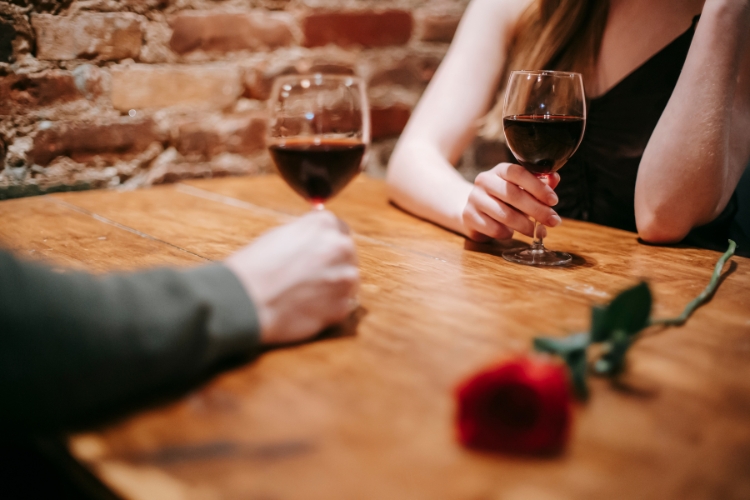
From Swiping to Mingling: The Appeal of Real-Life Interactions
As the digital age revolutionizes how we find love, a growing number of singles are turning away from the screen in search of more authentic connections. In-person dating events are gaining popularity, offering a refreshing alternative to the often impersonal experience of online dating apps. These events provide a space where chemistry can spark in real time, and where the nuances of personality shine through in a way that’s impossible to replicate online.
The appeal of these gatherings lies in their ability to mimic the natural way relationships have traditionally started – through real-life interactions. Attendees often find that the atmosphere of in-person events is more conducive to forming genuine connections.
Social media and dating apps have transformed the landscape of love and courtship, but they can’t replace the visceral experience of meeting someone face-to-face. The curated nature of these events, coupled with the absence of digital trolls, creates a safe and engaging environment for singles to meet potential partners.
Curated Experiences vs. Random Matches
In the quest for companionship, the choice between curated experiences and random matches can be pivotal. Curated experiences offer a tailored approach to dating, where matches are handpicked based on compatibility and personal preferences. This method contrasts sharply with the randomness of swiping on profiles, where the outcome relies heavily on volume and chance.
- Curated experiences aim to create meaningful connections by considering a user’s values, interests, and goals.
- Random matching systems rely on algorithms that may prioritize quantity over quality, leading to a less personalized experience.
The effectiveness of curated matchmaking is evident in the stories of those who find lasting relationships through these services. It addresses the concerns of individuals looking for more serious commitments, as highlighted by a Quora user questioning the superiority of matchmaking services over dating apps. The personalized touch of curated services can significantly increase the chances of meeting someone truly compatible, as opposed to the often overwhelming and endless cycle of swiping.
The Role of Community in Modern Dating
In the quest for companionship, the community aspect of dating has taken on a new significance. Beyond individual matches, there’s a collective journey in the search for connection, where shared experiences and mutual support play a crucial role.
The rise of in-person dating events highlights the desire for more organic interactions. These events often foster a sense of belonging, as they bring together individuals with common interests and intentions. Here’s how community shapes modern dating:
- Shared experiences: Participating in group activities or events creates a bond that can lead to deeper connections.
- Mutual support: Dating within a community provides a network of friends and confidants who understand the ups and downs of the dating process.
- Diverse connections: Community events offer opportunities to meet a wide range of people, increasing the chances of finding someone compatible.
The reliance on digital communication has left many yearning for more tangible ways to connect. The community offers a space where authenticity is valued and real connections can flourish.
The Impact of Social Media on Relationship Dynamics

The Blurring Lines Between Public and Private Lives
As individuals share more aspects of their personal lives online, the line between private and public identities becomes blurred. Couples must negotiate what is shared on platforms like Instagram, Facebook, and TikTok, where intimacy can inadvertently become a public spectacle. This new dynamic challenges traditional boundaries and requires a delicate balance between openness and privacy.
In the age of social media, every post, like, and comment can be a statement about one’s relationship status and personal life. The pressure to maintain an idealized online presence can lead to a performative aspect in relationships, where the genuine connection may take a backseat to virtual perceptions.
The pivotal role of social media in shaping modern dating and relationships is undeniable. It has become a stage where romantic narratives are crafted and broadcasted, often with the unintended consequence of inviting public scrutiny into one’s private affairs. Here are some considerations for couples navigating this landscape:
- Deciding together what to share and what to keep private
- Understanding the potential impact of online behavior on the relationship
- Setting boundaries to protect the relationship from external influences
Social Media as a Platform for Romantic Narratives
Social media has evolved into a stage for individuals to narrate their romantic journeys. Boldly declaring one’s relationship status has become a norm, with platforms facilitating everything from the first flirty message to the tearful post-breakup status. This public documentation of private affairs has altered the expectations and pressures within relationships.
- It has become a platform for public displays of affection, relationship announcements, and even breakups.
The digital age has not only shifted where we find love but also how we display it. A couple’s milestones are often shared in real-time, creating a digital scrapbook of their love story. This transparency can sometimes blur the lines between genuine sharing and seeking validation.
The need for virtual validation can influence the dynamics of a relationship, often placing undue emphasis on how it appears to the outside world rather than its actual health and happiness.
The Influence of Virtual Validation on Self-Esteem and Relationships
In the age of social media, virtual validation has become a currency of self-worth, with likes, comments, and shares often serving as a barometer for one’s social standing. The quest for online approval can lead to a precarious balance between genuine self-expression and the pursuit of digital affirmation.
- The Internet, while not a real place, can be used for better or worse in the context of relationships.
- Excessive use of social media may negatively impact self-esteem, echoing findings that link problematic internet use with lower self-esteem.
- Online dating services, despite their convenience, are not equipped to resolve issues like low self-esteem, which can be exacerbated by the digital environment.
The digital realm offers a platform for self-esteem enhancement, but this often comes at the cost of increased vulnerability to the opinions of others.
Research indicates that variables such as sex searches and self-esteem enhancement are significant predictors of problematic internet use, suggesting a complex relationship between online behaviors and personal well-being.
Conclusion
In the dance of modern love, social media and dating apps have become the music to which many of us sway. As we’ve explored, these platforms are not just about the superficial act of swiping right or left; they are about fostering connections and navigating the complexities of relationships in the digital age.
The key takeaways include the importance of being authentic, maintaining a complete profile, and engaging with others in a meaningful way. While some may yearn for the days of meeting ‘IRL’ and the serendipity it brings, the reality is that social media is here to stay, and with it, a new set of rules for romance.
Whether we choose to embrace these tools or approach them with caution, one thing is clear: the quest for love in the 21st century is irrevocably intertwined with the digital world. As we continue to swipe, like, and message, let us not forget the power of genuine human connection and the timeless art of love that transcends any platform.
FrAQs:
How has social media reshaped the modern dating scene?
Social media and dating apps have transformed the way individuals connect and form romantic relationships. The ease of swiping and matching based on preferences has made it possible to meet potential partners from a broader pool than traditional dating methods.
What are some dos and don’ts for using social media to find love?
Do: Be authentic but engaging, keep your account secure, and ensure your profile is complete. Don’t: Use social media purely for attention, avoid it altogether, or present a false persona.
What features of dating apps foster meaningful connections?
Features that enhance user experience and engagement, such as detailed profiles, compatibility quizzes, and interactive communication tools, help users form more meaningful connections on dating apps.
How do in-person dating events compare to online dating?
In-person dating events offer a chance for real-life interactions and connections that go beyond superficial swipes. They provide curated experiences that can lead to deeper connections and community building.
What impact does social media have on relationships?
Social media blurs the lines between public and private lives and can serve as a platform for showcasing romantic narratives. It also influences self-esteem and relationships through the need for virtual validation.
How can one deal with digital rejection and ghosting?
Dealing with digital rejection involves maintaining a healthy perspective and not taking ghosting personally. It’s important to focus on self-care and remember that such experiences are common in online dating.

